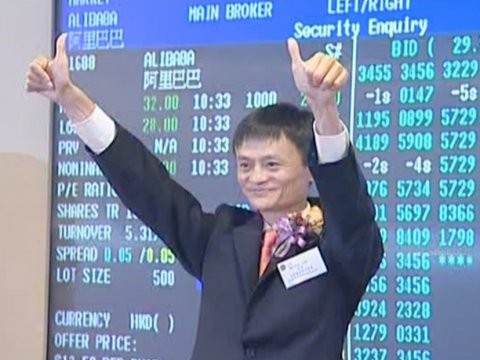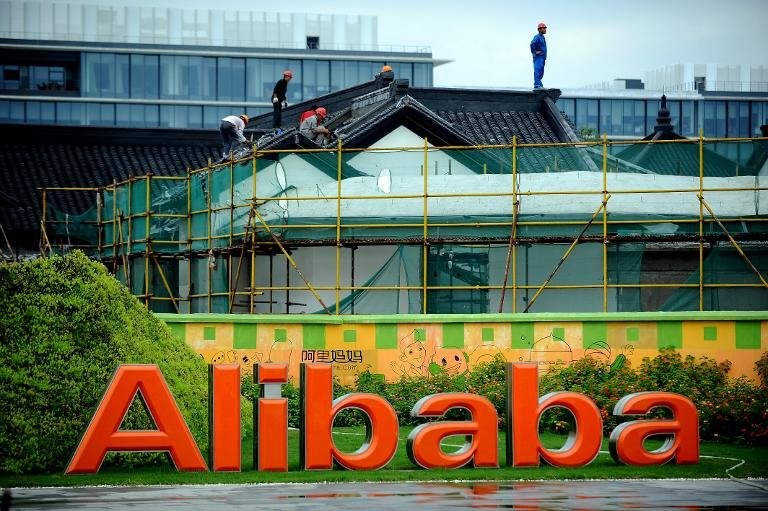The red flags around Alibaba and one of the biggest stock debuts in history The Washington Post
Post on: 16 Март, 2015 No Comment

The Alibaba Group, China’s e-commerce powerhouse, made history Friday when it raised more than $21 billion in a record-breaking stock market debut. So what exactly did investors buy?
A piece of a Caribbean-based holding company with tenuous ties to the actual firm. An ownership stake that’s overshadowed by the powers granted to a small group of insiders. And potential future conflicts with Chinese regulators, who are notoriously hard to predict.
The red flags surrounding Alibaba, now the world’s largest retailer, did little to temper investor excitement for a firm now bigger than Facebook, Disney and Amazon.com.
“The company has all the magic words that make investors and brokers salivate, which are ‘Chinese exposure,’ ‘the next Steve Jobs’ and ‘Internet,’ ” said Andrew Stoltmann, a Chicago securities attorney. “But we’re talking about a relatively young company that has just gone public, that is heavily subjected to the waning Chinese economy, that has a horrifically bad management structure . . . and that is now officially in the crosshairs of Amazon, Google and some of the biggest companies in the world.”
There’s plenty to love about Alibaba. It’s growing quickly. It’s ambitious. It’s hyper-profitable. Most of the people online in China use its marketplaces, and most of the stuff they buy goes through its sites. For Western investors, it’s one of the most visible ways they can bet on the explosive boom of China’s strengthening middle class. Alibaba’s shares soared to $93.89 at closing Friday, 38 percent higher than the company’s initial stock price.
Traders work on the floor of the New York Stock Exchange while the price of Alibaba Group’s initial price offering is decided on September 19, 2014 in New York City. (Andrew Burton/Getty Images)
But the worries with Alibaba start at the highest level, in its top-heavy leadership structure. Under Alibaba’s “dual class” system, founder Jack Ma and his top partners control the company and its board of directors, even though they own only a tiny slice of the company’s shares. Unlike in a traditional “one share, one vote” policy, outside shareholders would have little influence and could be easily overruled, no matter how much they’ve invested.
That unusual structure, analysts said, could potentially hurt the board’s independence and spark more shareholder disputes. Hong Kong’s major stock exchange deemed it onerous enough to keep it from taking on Alibaba’s offering; the New York Stock Exchange accepted it instead.
Mark Mobius, an executive chairman of Franklin Templeton Investments, told CNN Money that Alibaba’s structure could prove “very dangerous” for average investors. “If something goes wrong and they decide to take all the pay away,” Mobius said, “there’s nothing you can do about it.”
It’s not just that shareholders won’t have an influential ownership stake in Alibaba. They won’t even really have ownership. Investors aren’t really buying shares in Alibaba, they’re buying shares in a Cayman Islands-based “variable interest entity,” a kind of shell company Chinese firms use to get around the country’s strict rules on foreign ownership.
Chinese government regulators have tolerated the loophole. But they could just as easily close it, too, by revoking the business licenses of Alibaba’s subsidiaries or restricting the group’s operations, analysts said.
Ma, the group’s gregarious billionaire founder, is well-liked, but he has stumbled in the 15 years since founding the company from his small apartment. Analysts have questioned the firm’s recent tech buying sprees. And Ma’s $192 million surprise investment earlier this year in a popular Chinese soccer team, which he agreed to after a night of drinking with a fellow billionaire, didn’t help.

One of Alibaba’s biggest snags centered around Alipay, its fast-growing payment service, which Ma split from the rest of the company in 2011 and moved to a firm that he controlled. Done without board approval, the move enraged two of Alibaba’s biggest investors, Web giant Yahoo and Japanese telecom powerhouse SoftBank.
Alibaba’s shares soared to $93.89 at closing Friday, 38 percent higher than the company’s initial stock price.
The three firms later negotiated a settlement, but analysts said their trust was weakened. Analysts at Morningstar, which liked a lot about Alibaba’s performance, nonetheless said the firm had “high uncertainty and poor stewardship.”
Alibaba’s sprawling online marketplaces, Taobao and Tmall, have in the past struggled to block a torrent of counterfeit merchandise, a problem which once led U.S. officials to label the firm’s businesses “notorious markets” for intellectual-property fraud. The company has pushed to aggressively blacklist problematic suppliers, but analysts said the fakes only multiply as the firm grows.
Alibaba will likely face even more growing pains as it pushes to enter retail markets in Europe and the United States, where it will confront fierce competition from the tech world’s most established players. Analysts said Alibaba will need to spend more on new technology, marketing, employees and other expensive propositions that could cut into its earnings and hurt its bottom line.
All companies face obstacles, and Alibaba will have more resources to deal with them than most. But when asked Friday about how investors should cope with Alibaba’s risks, Ma instructed shareholders to take solace in something that was much less concrete: “Trust.”
“Trust us. Trust us the market, trust the young people, trust the new technology. The world is getting more transparent. Everything you worried about, I’ve been worried about for the past 15 years,” Ma told CNBC on the floor of the NYSE. “When you trust, everything is simple. If you don’t trust, everything gets complicated.”














